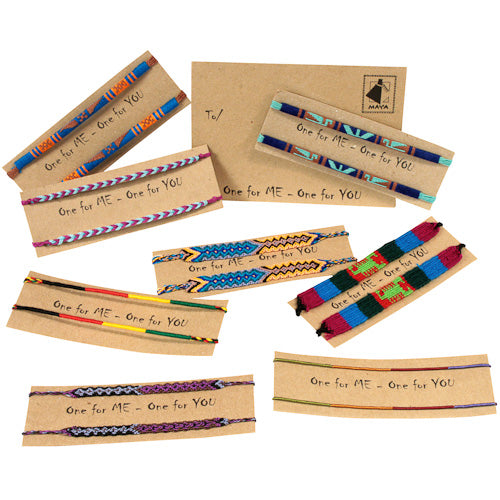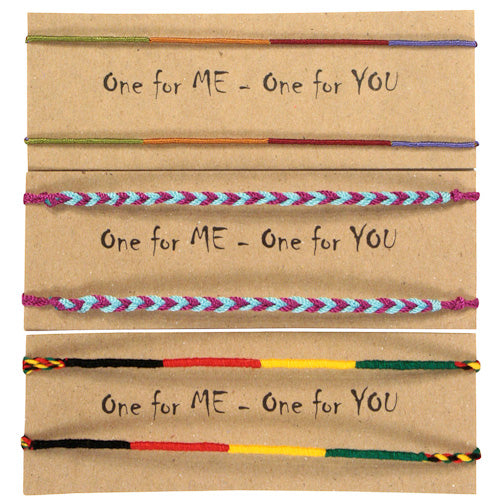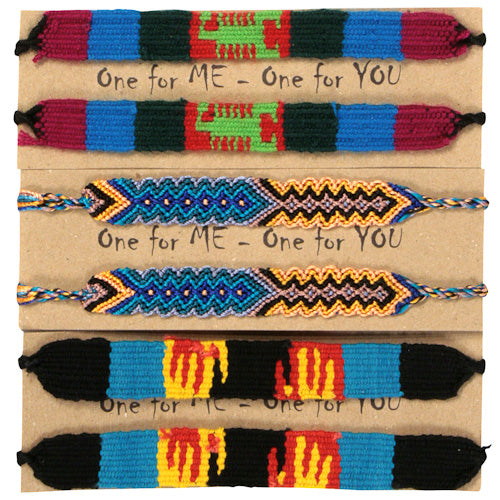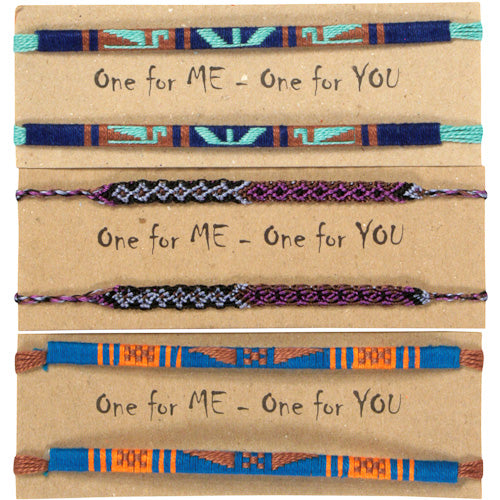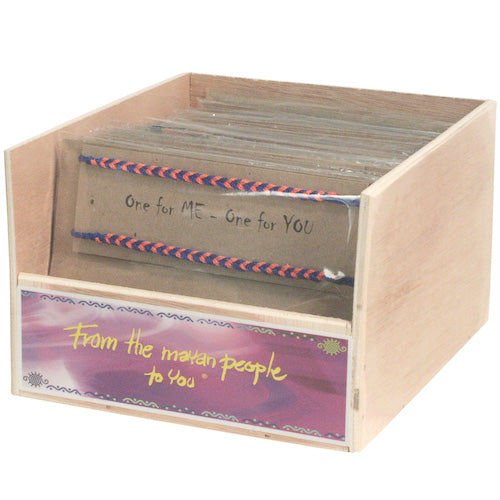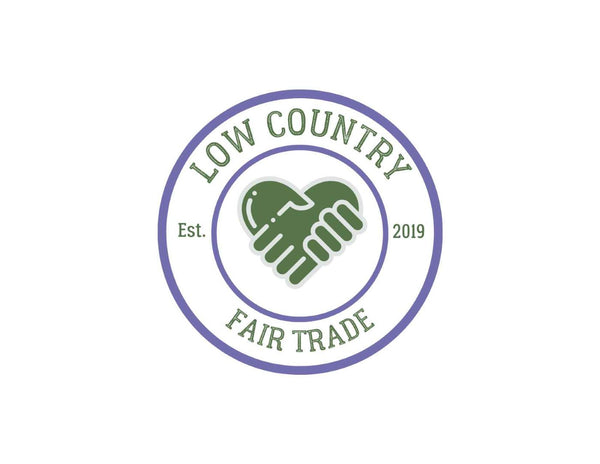OWP
Juego de Pulseras de la Amistad Tejidas a Mano-Comercio Justo-Guatemala
Juego de Pulseras de la Amistad Tejidas a Mano-Comercio Justo-Guatemala
No se pudo cargar la disponibilidad de retiro
Estas pulseras de la amistad tejidas a mano "One for Me - One for You" son ideales para todos tus amigos y amigos más cercanos. La idea y la técnica de tejer pulseras de la amistad fueron aprendidas por los indios mayas de los viajeros que llegaron a Guatemala en los años 1960. Los viajeros hacían anillos de la amistad y se los regalaban a los buenos amigos que hacían en sus largos viajes. Quienes viajen durante mucho tiempo podrán tener las muñecas llenas de pulseras de amigos de todo el mundo.
Hechas a mano por artesanos guatemaltecos de De La Selva, estas pulseras dan un mensaje especial de amistad y unidad.
- Cada paquete incluye dos pulseras a juego de 11": una para mí y otra para ti.
- Las pulseras son de varios colores y estilos de tejido.
- Empaquetado en un atractivo sobre con la historia de la pulsera de la amistad en la solapa.
Hecho a mano en Guatemala e importado de comercio justo.
Para obtener más información sobre los artistas y las técnicas utilizadas para crear estos maravillosos artículos ecológicos, haga clic a continuación en "Acerca de los artesanos".
Share
About the Artisans
About the Artisans
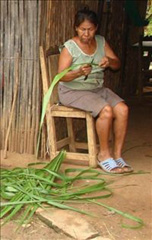 Joyeria Semilla meaning Seed Jewelry is a small fair-trade workshop in the Andean town of Villa de Leyva, Colombia. Girasol Taborda, a local artisan and social entrepreneur, started the workshop in the mid-1990s.
Joyeria Semilla meaning Seed Jewelry is a small fair-trade workshop in the Andean town of Villa de Leyva, Colombia. Girasol Taborda, a local artisan and social entrepreneur, started the workshop in the mid-1990s.
Joyeria Semilla’s objective is three-folds; to create new jobs, revive Colombia's handicrafts sector and to motivate locals to better manage their natural resources. The organization works primarily with socially and economically disadvantaged youths, single mothers and people with disabilities in the area. The company offers free training in product design, technical training and marketing to new members. Joyeria Semilla has trained them in the craft of jewelry-making.
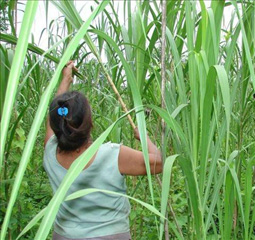
Caña Flecha or “Gynerium Sagittatum” is a locally found palm tree in the regions of the Caribbean coast. The leaves from this plant are used for making jewelry, woven hats, bags and baskets. The Zenú Indians were and their descendants inherited the tradition of picking veins of the green palm leaf for weaving. These veins were made into woven hats and other products for their personal use.
The Zenú culture is said to have existed between 200BC to1600AD. With the arrival of the colonizers in the 16th century, the indigenous community declined of unknown reasons. Today a very small population remains that claims the inheritance of the almost extinct Zenú tribe. Known for their skills in the construction of major waterworks, canals and irrigation system along with being skilled goldsmiths, examples of their accomplished craftsmanship are found in various museums around the world. Their larger means of subsistence were hunting, farming, fishing and trading.
Caña Flecha is found in abundance in the region, and hence makes for a sustainable and naturally available raw material for these products. Every bit of the plant is utilized – from using in building walls and roofs in houses to food for cattle and medicinal purposes. It is from the central vein of the leaf that the fibers for weaving are obtained. After the hard surface is peeled off, the fibers are left in the sun to dry and undergo a natural tinting process; these fibers are barely about 1 millimeter in thickness and hence call for a lot of skill and patience to weave with. The dried fibers are then processed for natural coloration - some are boiled with lemon to whiten them and some are treated with mud and boiled with plantain leaves to blacken them. The designs are based on ancient motifs and mathematical representations, which are inspired by the early Zenú culture.
